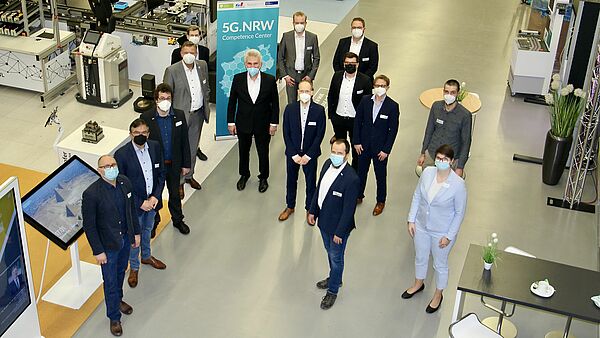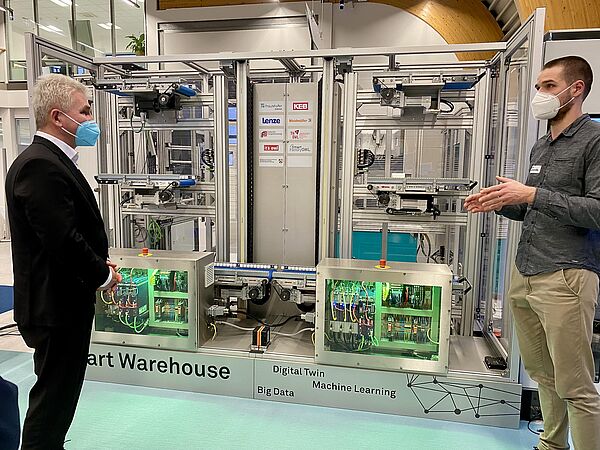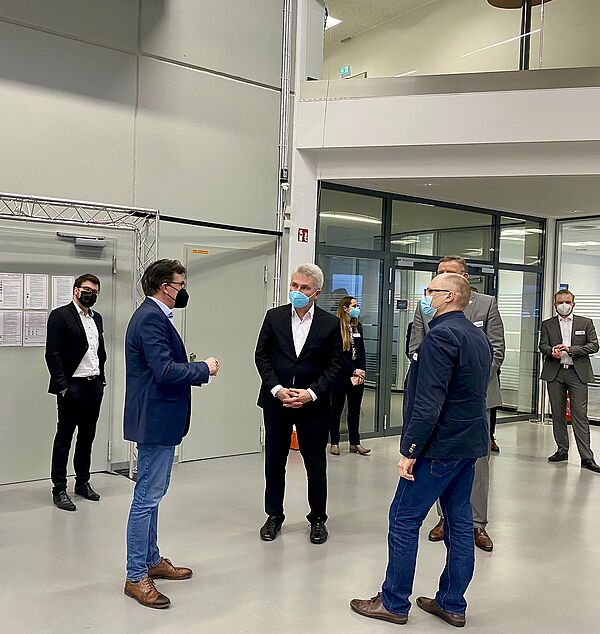Faster mobile Internet for communications and multimedia applications, networked mobility services, better network stability at major events, and coverage of rural regions are among the benefits brought by the new 5G mobile communications standard. Higher data transmission rates, real-time transmission and the networking of machines, plants and robots in industry will also become possible with the help of 5G. The Institute Industrial IT (inIT) at the OWL University of Applied Sciences and Arts has been working on this forward-looking research topic for several years.
Together with the University of Paderborn, InnoZENT OWL e. V. and the industrial companies Benteler Business Services GmbH, MECSware GmbH and Nuromedia GmbH, inIT launched the project "5G4Industry" last year. "In the project, we are developing management and planning tools that ensure the cost-optimal provision and use of 5G resources for the transport, processing and storage of machine data provide in the background," describes research associate Arne Neumann. The campus network in the SmartFactoryOWL on the Innovation Campus Lemgo has now been upgraded to the latest 5G technology and thus supports the use cases planned in the 5G4Industry project. In the real lab for Industry 4.0, which is a joint facility of Fraunhofer IOSB-INA and TH OWL, companies can thus be brought into contact with 5G-based digitalization, illustrating both implementation possibilities and value creation potential.
Last week, Prof. Dr. Andreas Pinkwart, Minister for Economic Affairs, Innovation, Digitalization and Energy of the State of North Rhine-Westphalia, came to see this for himself. Together with Matthias Goeken, a member of the state parliament from the Höxter constituency, and representatives of the 5G4Industry project and the Competence Center 5G.NRW, they discussed 5G as an implementation module in the overall digitalization and Industry 4.0 concept. Minister Pinkwart also sees great potential for industry: "In order for us in North Rhine-Westphalia to further expand our key position in the area of 5G, we must focus above all on the application fields of industry. The potential is great, and at the same time the requirements for data rates and latency are becoming increasingly important in the industrial context. With the 5G4Industry project, we are promoting a strong consortium of science and industry as part of the 5G.NRW competition that focuses on industrial requirements as well as the needs of small and medium-sized companies and provides important impulses for the OWL region and beyond." The project is being funded by the North Rhine-Westphalian Ministry of Economic Affairs, Innovation, Digitalization and Energy as part of the 5G.NRW competition. In total, the state government is funding 13 outstanding 5G projects with up to 26 million euros as part of the first round of the competition.
In addition to the discussion, Minister Pinkwart was also shown real 5G use cases at SmartFactoryOWL. inIT employees Lukas Martenvormfelde and Dr. Lukasz Wisniewski presented the Smart Warehouse, where 5G-based augmented reality applications are implemented to support maintenance and service work.




